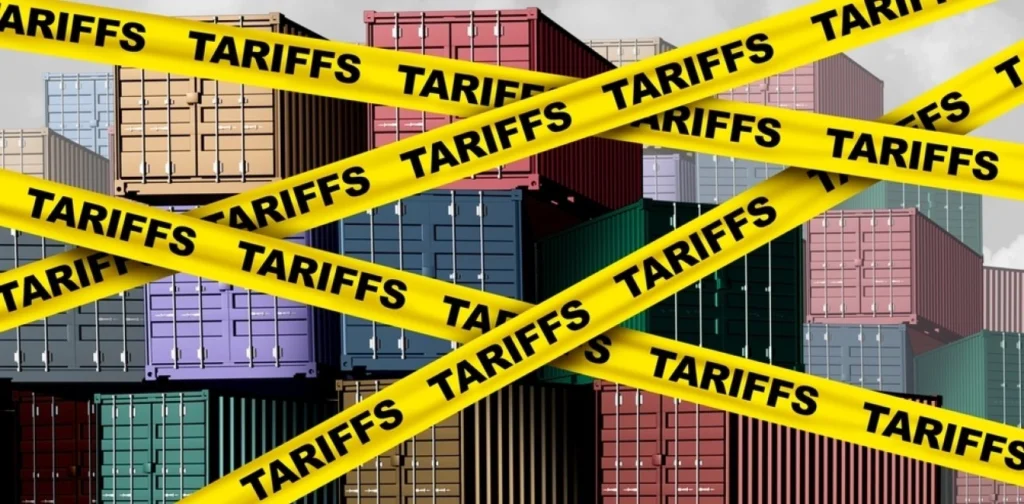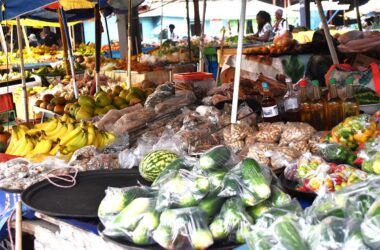The imposition of a 10 per cent tariff on goods from the Caribbean is nothing short of an economic quandary—a decision that threatens to destabilise economies in the region and undermines a decades-long partnership fostered through the Caribbean Basin Initiative (CBI). Since 1983, the CBI has symbolised a collaborative effort to promote stability and growth, granting Caribbean countries duty-free access to the U.S. market for most goods.
This privileged trade arrangement has been a cornerstone of U.S.–Caribbean economic relations, fostering mutual benefits for both parties.
Through legislative measures like the Caribbean Basin Economic Recovery Act (CBERA) and the U.S.– Caribbean Basin Trade Partnership Act (CBTPA), the CBI has supported Caribbean nations in diversifying their exports and achieving economic progress. Data from recent reports underscores this success. Between 2018 and 2020, U.S. imports under CBI preferences consistently grew, culminating in $1.2 billion in 2020. Meanwhile, petroleum products from Trinidad and Tobago and Guyana emerged as key drivers, with Guyana experiencing a staggering 86.7 per cent increase in exports to the U.S.
Despite this growth in Caribbean exports to the U.S., the trade balance heavily favours the United States. In 2020, total U.S. exports to CBI countries amounted to $11.1 billion—nearly ten times the value of imports from the region. The U.S. goods trade surplus reached $6 billion, placing Caribbean countries in a subordinate position economically. Simply put, the effect of CBI on the U.S. economy has been negligible. Yet, the reciprocal benefits for Caribbean countries have been vital, enabling development and resilience in small, vulnerable economies.

President Trump’s decision to impose a 10 per cent tariff on Caribbean goods, even though it has been delayed for 90 days, threatens to unravel this intricate economic relationship. Caribbean exporters now risk losing their competitive edge in the U.S. market if the tariffs are implemented, as increased costs will inevitably reduce demand. The ripple effect could spell economic disaster for the region, disrupting industries, employment, and the fragile economic stability that the CBI has worked to achieve. For U.S. consumers, this tariff translates to higher prices on Caribbean goods such as rum and coffee—an undesirable outcome for both sides.
The logic behind these tariffs raises questions. If the U.S. trade surplus with CBI countries remains robust, where is the American disadvantage? Caribbean economies depend on access to the U.S. market, while the U.S. benefits from a steady stream of imports and export growth to the region. By disrupting this balance, the 10 per cent tariff undermines the economic symbiosis that has prevailed for nearly four decades.
The Caribbean Community (CARICOM) must act swiftly and decisively. A strong presentation to Washington is essential to emphasise the senselessness of this tax. CARICOM must highlight the negligible impact of Caribbean imports on the U.S. economy, the invaluable role of CBI in supporting development in the region, and the mutual benefits of a duty-free trade arrangement.
Economic partnerships thrive on mutual respect and benefit. The U.S. should not jeopardise the prosperity of neighbouring Caribbean economies for trivial gains. The removal of the 10 per cent tariff is not merely a matter of economic rationale—it is a call to uphold the values of cooperation and shared growth.
Let us hope Washington hears this call. As Caribbean leaders rally for fair trade practices, the world watches. Will reason prevail?
Footnote: The information about trade between America and CARICOM was taken from the 15th Report to Congress on the Operation of the CBERA (2023)

https://www.shutterstock.com/image-illustration/economic-tariffs-government-taxation-punative-tariff-2558358515


![Julien Alfred, left, edges Jacious Spears to win the women’s 60 metres at the Tyson Invitational in Arkansas, USA on Friday [Photo credit: CMC]](https://thevoiceslu.com/wp-content/uploads/2026/02/Julien-alfred-1-380x250.jpg)
![Denver Alphonse Jr. [Photo Credit: ASC KCS]](https://thevoiceslu.com/wp-content/uploads/2026/02/Denver-Alphonse-Jr-feat-380x250.jpg)
![On field action in the Bay Bay Cup [Photo credit : MYDS]](https://thevoiceslu.com/wp-content/uploads/2026/02/On-field-action-in-the-Bay-Bay-Cup-feat-380x250.jpg)








